5 Reasons to Love $4 Gas
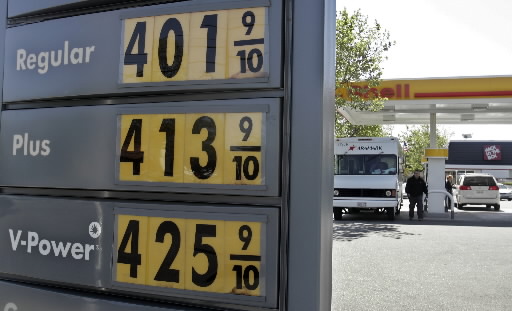 The gang at Foreign Policy wants you to know that, “Sure, it’s ruining the global economy and making everyone miserable, but there’s an underappreciated upside to the high price of oil.”
The gang at Foreign Policy wants you to know that, “Sure, it’s ruining the global economy and making everyone miserable, but there’s an underappreciated upside to the high price of oil.”
They’d have to be awfully good to offset ruining the economy and making everyone miserable, no? Well, here they are:
Slightly more people may be taking mass transit. Of course, since people obviously prefer to drive, the collective benefits this provides are offset by individual unhappiness.
People are getting more exercise because they’re being forced to walk or ride bikes more. And they’re losing weight! That’s undeniably a good thing, unless you’re in the health care or mortuary business. Then again, there’s a trade-off in time that otherwise would have been devoted to productivity or leisure. And, depending on the weather, you’re likely to show up for work soaked from rain or sweat if you live far enough away that you would be driving if only gas weren’t so expensive.
Fewer car crashes! If you’re not driving, you can’t get into a car crash, right? Of course, a car might hit you while you’re riding your bike.
Shorter commutes and less traffic. The combination of some people moving closer to work and others taking mass transit or biking means that people are spending less time on the road. (Anecdotally, this doesn’t seem to be the case in the DC area.) Of course, this means that people are either paying more for housing or living in less desirable housing. After all, there’s a reason they were living further from work — which almost nobody wants to do, all other things being equal — to begin with.
We’re switching to biofuels. And thereby raising food prices dramatically, which has been devastating for the world’s poor. But we’re working on some other types of biofuels that won’t do that. It’ll take a few decades, though. (Why is this listed as a reason to love $4 gas, again? Apparently, “Four Reasons to Love $4 Gas” weren’t enough.)
Via Matt Yglesias, who wishes the government rather than the oil companies were getting the extra money.
Photo: Cleveland Plain Dealer

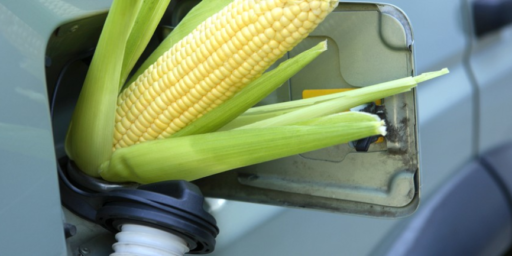

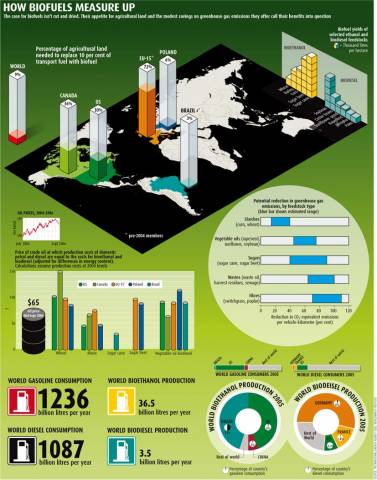
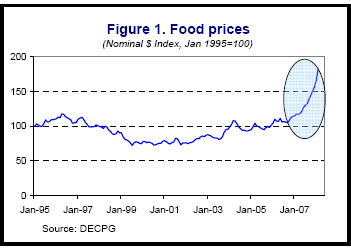
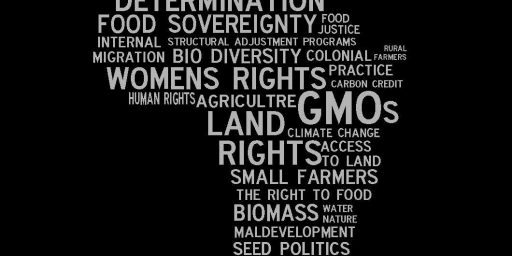
What about the market for “4”s? Why, we haven’t used this many “4”s since 1944. People who make “4”s are working overtime. There’s full employment in the “4” sector of the economy. The government is considering printing $”4″ bills (or maybe mintimg $”4″ coins). Where can I buy stock in “4” companies?
Why do people write this kind of tripe? I know there is a silver lining to every cloud but it just irritates the crap out of most of us to be told something bad is actually good for us. We are not children needing this sort of “wisdom”.
Ask the worker who just lost a job what they think of $4 gas. Ask a housewife who is paying more at the market what she thinks of $4 gas. Ask a lumber yard owner what he thinks of nearly $5 diesel for his trucks.
I wonder if this same group will write up something telling us the bright side to global warming? I thought not.
People don’t like mass transit largely because it sucks. Is sucks, at least in part, because it is underfunded. It is underfunded, I would imagine, because nobody wants their tax money paying for something they don’t use.
There’s more to global food shortages than biofuels. Rice and wheat fields in Asia have not been as productive as in the past, combined with an increase in local demand taking more of what is produced off the global market. Bio-ethanol is just one of several factors that are combining right now to cause global food shortages. Absent those other factors, we wouldn’t have the problem we have now.
Probably not the same group, but there has been no lack of others who write about the benefits of global warming.
Michael, is it not supposed to actually get warmer during a period of global warming? It hasn’t. The new terminology is climate change. That happens every seasonal change. Study a little about solar activity and what happens when there is a lack of sun spots. Then tell me again about global warming. If we continue to experience a downturn in solar activity, you may wish we had more greenhouse gases to offset the cold.
They’re actually different things. Climate change can be caused by Global Warming, but it can just as easily be caused by other things. Global Warming specifically refers to an increase in global temperatures, which I’m pretty sure has been happening.
Yeah, scientists are all stupid enough to not think about that. Or maybe it’s you that’s wrong.
http://en.wikipedia.org/wiki/Image:Temp-sunspot-co2.svg
If you look, you’ll notice that the correlation breaks down in the second half of the 20th century, and that even though solar activity has decreased slightly been holding steady, temperatures are increasing exponentially. You’ll notice that from there, temperature correlates with CO2 concentration. It’s this break in correlation to things known to naturally effect temperatures before the industrial revolution that gives rise to the idea of anthropogenic global warming.
Let’s look at this.
I did a post a while ago, that looked at locational data collected over a period of time, from Europian cell phones.
Turned out, that people there seldom travel very far from home at all, by any means. Apparently that much vaunted highly financed ‘public’ (taxpayer finded) mass transit system isn’t getting used all that much. Which of course would also seem to explain why generaly things are so uncrowded in thta system.
I suggested at the time, that it rather put the hammerlock on the argument that people didn’t ride the things because they were under-funded. Their systems are richly funded in the extreme.
Looks from here like, even in Europe, given high fuel prices and Altoids boxes for cars, and thereby given the choice of public transport, or not going anywhere, They prefer going nowhere.
Understandable, but I’m not sure it’s a situation we want here.
Bithead,
Do you have any data from a metropolitan area similar to US cities, where you _have_ to travel some distance to get the things you need, that also has a well-funded public transportation system? Unfortunately, if people are going nowhere, that doesn’t show that they don’t like public transportation, it just shows that they don’t need any transportation.
If there is data showing them using the same private/public ratio as in US cities, despite having a better public transportation infrastructure and higher gasoline cost, then it would “put the hammerlock” on it.
Mikey, around 1100 years ago Vikings settled in Greenland. They raised crops, herded animals and lived in communities there. Must have been somewhat warmer than it is today. Where was the CO2 then? Large volcanic eruptions release far more CO2 than man creats. You need to be aware than climate change on this planet is far more effected by solar activities than it is by human activity. But then, you believe in junk science.
Zels: This would seem to fly in the face of the widely held theory that Greenland was founded by the green party.
Personally, I’m considering a proposal wherein we forcibly move all the members of that socialist group to Greenland. Given their aversion to oil, I suspect the statements that global warming is a good thing to be showing up in the ‘in’ basket shortly thereafter.
Not really, Greenland wasn’t very hospitable even then. Eric the Red called it “Greenland” to lure settlers there, not because it was actually green. There were very few places on the island where the Norse could actually raise crops and animals. Like your argument, their settlements ultimately failed.